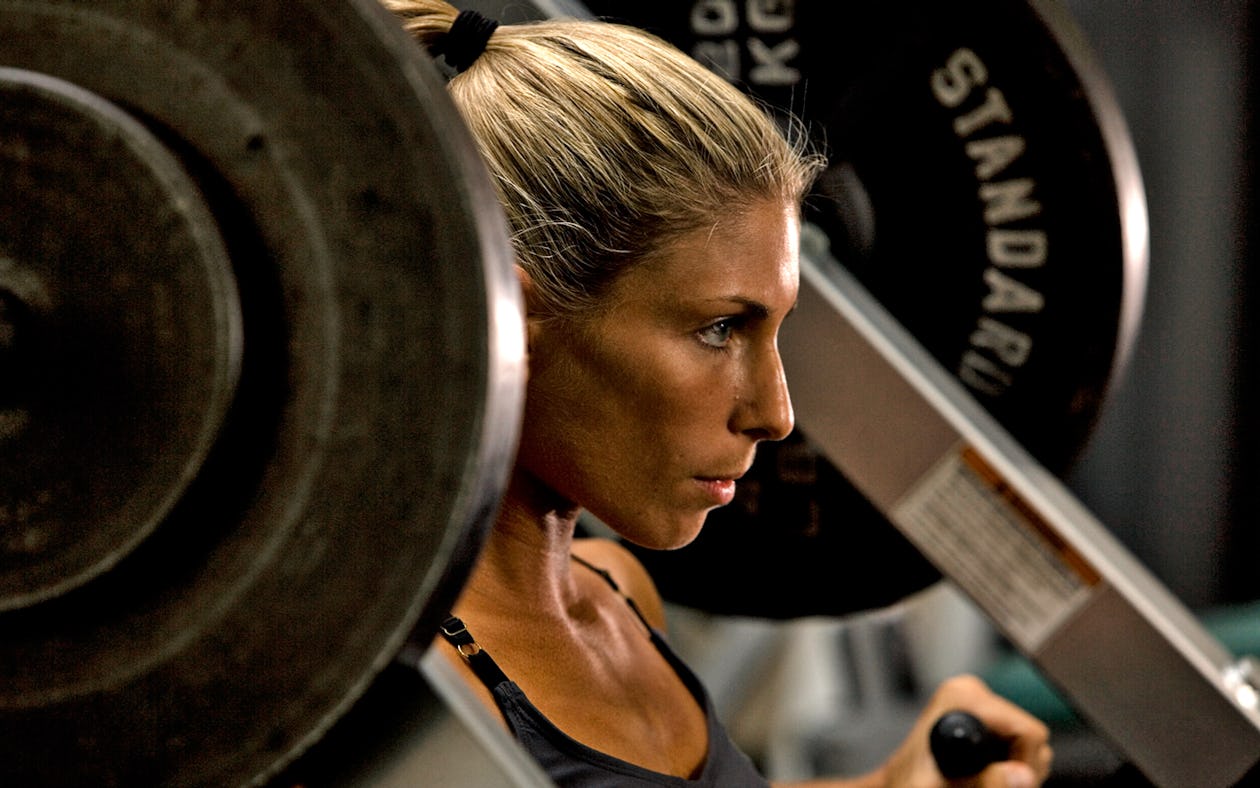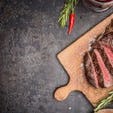Stepping off stage after winning my first figure competition in 2006 was an amazing feeling.
Months of hard work, sacrifice, tighter nutrition than I ever thought possible and more miles logged on the treadmill than ever. Ahh, sweet accomplishment: leanest body ever, killer photos to commemorate the experience and the knowledge that I had done something that not many people — those with less discipline and drive than me — would ever be able to do.
I admit it, the ugly truth was that I had a lot of self-righteousness about the whole thing. It empowered me, and I felt “better than” because I sacrificed, I stayed strong, in control and I wasn’t weak and lazy like most people.
It’s embarrassing to even write that out, and like I said, ugly. But at 24, I had an ego, very little empathy and a lot of insecurities that could only be momentarily squashed by believing I was better than others.
Anyway, the contentment and relief I felt was very short-lived.
Because within 2 weeks of my competition, I gained back 15 lbs and was almost back to my starting weight. Only this time, at that weight, I was devastated. I stuffed my face with sweets and treats for a week straight and lost all my gains because my willpower was completely gone after months of depriving myself – so much so that my only option was to binge.
Contrasted with 2 weeks prior, I now felt completely out of control, with zero handle on my eating. I felt ashamed, felt stuffed into my clothes and desperately wanted to get back in control. I remember feeling like I just didn’t know how to eat or even live anymore. I didn’t know how to go grocery shopping – something I’d been doing my entire life! What did I buy now? I had no compass.
So what did I do? Sign up for another show, of course.
And for the next 5 years, having shows on my calendar became the only way I could motivate myself to eat well because it was a goal and “having a plan” was the only way I managed any type of compliance.
Besides, “eating healthy for life” felt like the least motivating thing ever. There was nothing to look forward to, no goal, no threat of getting on stage in a bikini to “keep me in line” and therefore, it seemed impossible to stick with.
So when I get email after email from women saying they “need a goal” in order to be motivated to exercise regularly and eat right, I get it. Without something up ahead they think, “Meh, why bother?”
Some might prep for a fitness competition or lose inches for a vacation or have a specific amount of weight they need to lose by a specific date or event.
I totally get it. I remember eating everything in sight until it was time to “start my competition diet” again – I always needed a show up ahead to aim for. For years, I thought the only way to “get back in shape” was to do another competition.
Always Needing a Plan Keeps You Lazy and Dependent

Now, years later, I believe always having to be “on a plan” is a trap.
It’s a crutch because we never learn how to do it on our own. Many people go from expert to expert, diet book after diet book, looking for that perfect meal plan. They hire coach after coach thinking, “This will be the one, finally!” and they always end up feeling let down and defeated.
They end up blaming the coach for not understanding them, and then they blame themselves for having poor discipline or being weak because they can’t follow it through. They feel shame and embarrassment at not being able to comply, when in actuality, it’s the approach they are taking that’s the problem, not them.
Can you see how this cycle becomes defeatist? We eventually reach a point where we believe well never truly be successful. This is a negative feedback loop, and it’s a trap.
Because needing to always be on a plan is a really poor eating strategy. It takes the ownership off you and puts it on some rigid protocol that leaves zero room for flexibility or learning. For many people who are constantly looking to plans for security, the scariest thing about trying it on your own is feeling like you might be messing up every second. So you try to find someone else to tell you what to eat, when to eat it, how much to eat, and answer every single minute question that could possibly arise.
This is a control mechanism gone wrong. Why? Because eventually we have to live. We have to DIY at some point. We will be in situations we have to figure out on our own.
And I don’t know about you, but I don’t want to be scared to go on vacation, or someone’s house for dinner or to dine at a restaurant. I want to trust myself to handle it. And inherently in meal plan programs, there is little opportunity to learn how to do that.
Learning to Trust Yourself
 I get emails and messages from women all the time asking me what I think of this approach or that. Should they try it? Will it work? And my always-frustrating answer is that I just don’t know, and they should try it and see. Observe and measure. Get in tune with your body and be systematic about it.
I get emails and messages from women all the time asking me what I think of this approach or that. Should they try it? Will it work? And my always-frustrating answer is that I just don’t know, and they should try it and see. Observe and measure. Get in tune with your body and be systematic about it.
How can you ever learn without trial and error? There’s no magic formula that once you do enough research and reading to uncover it, body change will be effortless. The effortlessness comes through the learning process. It comes as a result of experiencing the very thing you are scared of: messing up.
Don’t Be Afraid to Mess Up
Messing up is good because it offers feedback if you choose to be clinical about it. The fear of messing up, I believe, is born out of the fact that we make it mean we suck. We attach meaning to messing up, where it means we’re “not good enough” or “weak” and “undisciplined.” But that’s frankly a BS story we tell ourselves to keep ourselves struggling.
Instead, couldn’t messing up just act as objective feedback and help us learn some lessons?
It doesn’t have to take on this hugely spiraling negative meaning. Besides, without messing up, how can we ever learn?
One thing to remember is that nothing is ever irreversible. You never reach a point of no returns. And a physique is not made or broken in a day, a week or even a month. You always, ALWAYS have a chance to improve. But that improvement doesn’t happen without the challenges.
Should You Set Goals?
 Can goals be useful? Sure, but not when you cannot be motivated without them.
Can goals be useful? Sure, but not when you cannot be motivated without them.
This is simply an extreme version of the all-or-nothing dieting mindset. How much does it suck to only feel motivated to eat healthy when there’s something up ahead?
How about this for a deadline: forever.
Ugh, we hate this, don’t we? It feels depressing. Like, how can we possibly harness the motivation to eat healthy forever?! It doesn’t incentivize us, and it’s unsexy and frankly, it seems impossible.
Unless … you start off by adopting an approach that you can actually do forever. It doesn’t seem so impossible when it’s not super strict. This takes courage to try.
The way you get motivated to eat healthy forever is to take the moderate route. No crazy deprivation and no crazy binges. The way you get motivated to exercise forever is by finding things you enjoy regardless of what expert tells you it’s “not the most effective way to exercise.” Doesn’t matter.
Movement You Love is Movement You’ll Do
Goals can be great, but not when you can ONLY stay consistent when you have them in place.
How about this for a goal: getting up every day loving how you eat and how you move. Work to find that formula. Because that’s your forever-healthy formula.

)





